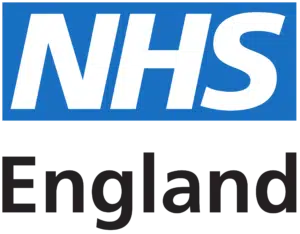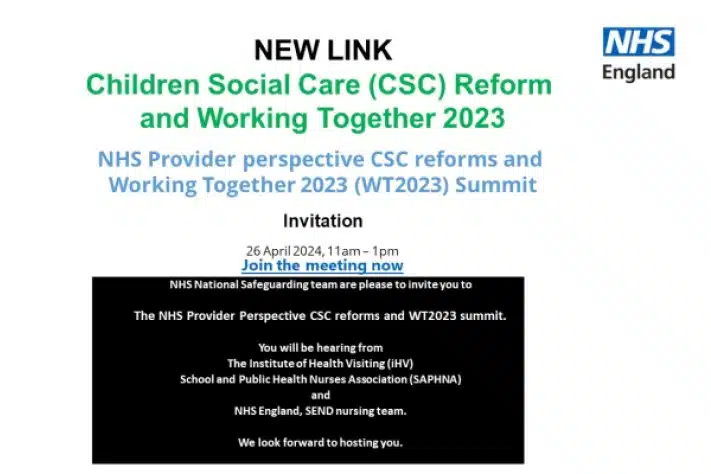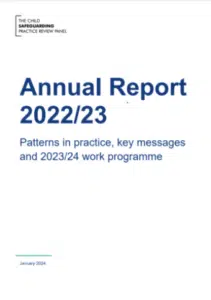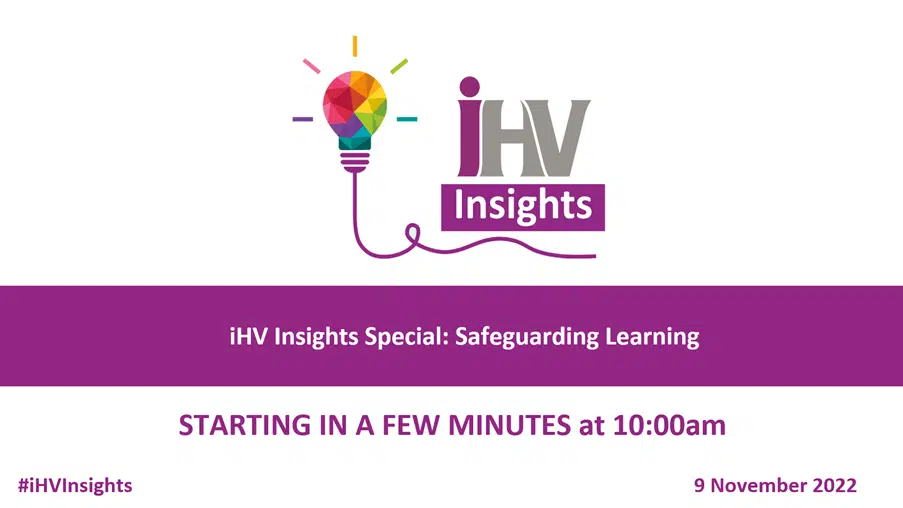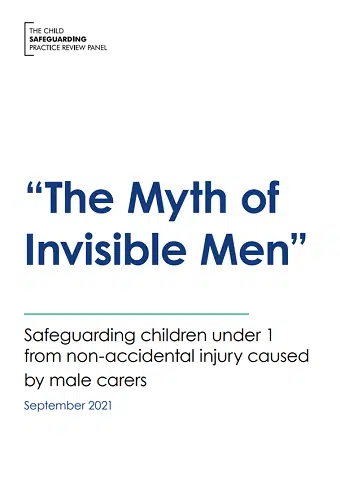On Friday 15 December, the Department for Education (DfE) published its updated version of “Working Together to Safeguard Children 2023”. The Department consulted with key stakeholders on proposed changes through an open consultation process between June and September this year.
To support the consultation, the Institute of Health Visiting engaged in meetings with DfE officials and submitted a written submission to the consultation in September 2023. Our considered position was developed in partnership with frontline practitioners, service leads, safeguarding representatives and our iHV Expert Advisers for Safeguarding, and through an iHV Roundtable event in August 2023 – you can read our written response to the consultation here.
“Working Together to Safeguard Children 2023” focuses on strengthening multi-agency working. It brings together new and existing guidance to emphasise that successful outcomes for children depend on strong multi-agency partnership working across the whole system of help, support and protection including effective work from all agencies with parents, carers, and families. We support this position – safeguarding is everyone’s business. There is a clear imperative to strengthen services to ensure that the most vulnerable babies, children and young people in our society are supported to achieve their full potential and are protected from harm.
This statutory guidance sets out key roles for individuals, organisations and agencies to deliver effective arrangements. It covers the legislative requirements, a framework for the three local safeguarding partners (local authorities, Integrated Care Boards and police), and a framework for child death reviews. This revision has a renewed focus on how organisations and agencies provide:
- Early help
- Safeguarding and promoting the welfare of children
- Child protection.
Of relevance to health visiting, the guidance introduces changes to the lead practitioner role. It clarifies that a broader range of practitioner can be the lead practitioner for children and families receiving support and services under section 17 of the Children Act 1989 (Child in Need), and the requirements on local authorities and their partners to agree and set out local governance arrangements.
The guidance states:
“Once the referral has been accepted by local authority children’s social care, a social work qualified practice supervisor or manager should decide, with partners where appropriate, who the most appropriate lead practitioner will be and, with the lead practitioner’s agreement, allocate them in line with the local protocol.
The lead practitioner role can be held by a range of people, including social workers. When allocating the lead practitioner, local authorities and their partners should consider the needs of the child and their family to ensure the lead practitioner has the time required to undertake the role. The lead practitioner should have the skills, knowledge, competence, and experience to work effectively with the child and their family. The lead practitioner should always be a social worker for child protection enquiries.”
Our response to the Working Together consultation sets out our position on this. To ensure that the key preventative public health role of health visitors is not compromised, we strongly recommend that implementation and prioritisation decisions take account of the full breadth of the Health Visiting Model for England, and support delivery of the Healthy Child Programme in full. Health visitors deliver important ‘health’ functions within a whole system approach that cannot be overlooked. These support clinical pathways across the NHS (urgent, primary and secondary care) and education (child development, school readiness and Special Education Needs and Disabilities (SEND)), alongside child safeguarding. For example, supporting parents to manage minor illnesses (read our latest evidence review on the crisis in urgent care for children 0-4years), providing interventions for families affected by perinatal mental illness and a range of physical needs in the postnatal care pathway, reducing risk factors for preventable disease (addressing smoking, poor nutrition, alcohol risks and physical inactivity) and early identification and support for children with developmental delay and SEND.
We recognise that there may be occasions when having a health visitor as the lead practitioner might be in the best interest of the child and we set these out in our consultation response – in summary:
- We do not support the case that health visitors should be the default lead practitioner for all babies and young children categorised as “Child in Need”.
- Designation of the lead practitioner needs to be agreed on a case-by-case basis, in the best interests of the child, and only when the health visiting service is sufficiently resourced (not as a sticking plaster for an under-resourced children’s social care department). For example, when a family is being supported through a preventative public health, health visitor-led, intensive home visiting programme like the Family Nurse Partnership Programme or the Maternal Early Childhood Sustained Home-visiting (MECSH) programme, or through a targeted programme of health visiting support for a child with Special Education Needs and Disabilities (SEND).
- However, care needs to be taken as there is a significant risk that, without sufficient resource, focusing health visitors’ efforts on statutory Child in Need cases will further accelerate their role drift away from preventative public health and earlier intervention (this was flagged as a national risk in our “State of Health Visiting” survey, published in 2023). Health visitors’ important “upstream” role is focused primarily on preventing, identifying and working with families to address problems before they reach crisis point. This takes pressure off children’s social care and is less costly in the long run. Health visiting is the only agency that proactively and systematically reaches out to all families with babies and young children from pregnancy and through the earliest years of life – this is a safety-critical function that needs to be protected at all costs. Without sufficient resource, eroding this “safety-net” further strips out the mechanism to identify vulnerable babies and young children.
The “Working Together to Safeguard Children 2023” guidance also includes:
- New national multi-agency child protection standards which set out actions, considerations and behaviours for improved child protection practice and outcomes for children.
- Clarification of roles and responsibilities of health practitioners, with specific duties for child safeguarding.
- Domestic Abuse Act 2021 legislation and the National Framework statutory guidance that supports a child-centred approach.
- Updated guidance and terminology on the management of child deaths and the language around the responsibility of professionals where relevant, to inform relevant safeguarding partners and the Child Safeguarding Practice Review Panel.
- Guidance on Improving practice with children, young people and families which provides advice for local areas to embed working together to safeguard children and the children’s social care national framework in practice.
Funding:
The Department for Education (DfE) has announced that it is investing more than £7 million, over the next 2 years to support local areas. This consists of £6.48 million grant funding in January 2024, for safeguarding partners to:
- Make changes to multi-agency safeguarding arrangements in light of the revised Working Together to Safeguard Children statutory guidance.
- Build a shared understanding between agencies of what the national framework means for multi-agency working.
This funding does not cover the costs of service delivery and sustainability. The guidance sets out an expectation that “leaders are ambitious about helping, supporting, and protecting children in their area and jointly prioritise and share resources accordingly”. If fully implemented, it is clear that these changes will place additional burdens on the health visiting workforce, shifting responsibilities from children’s social care to other services.
We are concerned that, as the costs of child protection continue to soar, budgets will not be redistributed to offset the additional burdens that this guidance places on organisations taking on the lead practitioner responsibilities. Prioritisation is likely to favour statutory responsibilities. Without addressing funding and health visiting workforce issues, services will be pressurised to prioritise “Child in Need” cases at the expense of preventative public health, leaving more families without the support that they need in other areas and proving much more costly in the long run.
This guidance presents an important opportunity to improve the care, support and safety of babies, children and young people. Its success will depend on its implementation as part of a whole system approach that also includes prevention and early intervention. As this directive represents a new national policy, we strongly recommend that its implementation is subject to the scrutiny of the Office for Budget Responsibility to ensure that it is fully costed and any additional burdens placed on services are managed with a commensurate budget uplift, workforce planning and action to address the current postcode lottery of health visiting service provision.
Next steps:
NHS Safeguarding is developing a safeguarding workplan to support the implementation of this guidance (we understand that the draft plan is due in mid-January 2024). At the iHV, we will be working closely with officials in the Office for Health Improvement and Disparities, NHS Safeguarding, and partners in other professional bodies and organisations including the School and Public Health Nurses Association, Association of Directors of Public Health and Local Government Association, to consider the specific implications of the Working Together 2023 guidance for health visiting and to support its implementation in practice.
The full suite of Working Together 2023 documents is available here:
